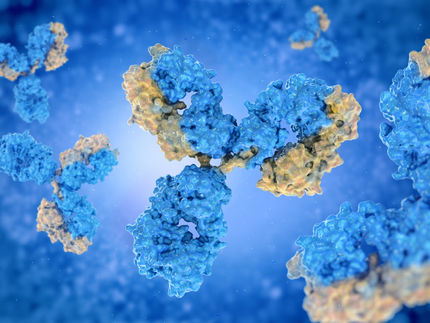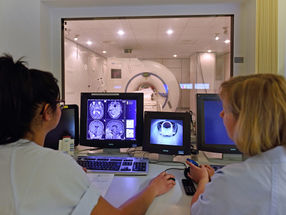Scientists Create First Successful Libraries of Avian Flu Virus Antibodies
Novel Project Could Help Thwart Worldwide Influenza Threat
Advertisement
An international group of American and Turkish research scientists, led by Sea Lane Biotechnologies, has created the first comprehensive monoclonal antibody libraries against avian influenza (H5N1) using samples from survivors of the 2005/2006 "bird flu" outbreak in Turkey.These antibody libraries hold the promise for developing a therapy that could stop a pandemic in its tracks and provide treatment to those infected, as well as potentially pointing the way towards the development of a universal flu vaccine. The expanded treatment and containment options offered by Sea Lane's antibody libraries could help provide healthcare officials, researchers, and governments with unprecedented resources to combat this serious global health threat.
So far, the new antibody libraries reported in the study have yielded more than 300 unique monoclonal antibodies that are active against H5N1 antigens. From this group, the authors identified several broadly neutralizing antibodies that were effective against a number of contemporary subtypes of H5 (avian) flu.
The new research reported here suggests that the antibodies recovered from the avian flu survivors may point to an exploitable weak spot in the virus, offering the tantalizing possibility that a "universal" vaccine against all strains might be made.
Remarkably, three of the more than 300 antibodies catalogued have been found to neutralize both the H1 (common seasonal flu) and H5 (avian) subtypes. "The antibodies we have isolated have the potential to be used directly as therapeutic agents against multiple influenza subtypes, permitting the resolution of infection upon administration to an infected individual," said Peter Palese, the Horace W. Goldsmith Professor & Chairman of Microbiology at The Mount Sinai School of Medicine (New York, NY), another collaborator on the project.
"Perhaps most importantly, these antibodies may be used to identify cross-reactive epitopes on the hemagglutinin protein of an influenza virus. Identification of such epitopes may allow the rational design of vaccines with cross-subtype neutralizing activity. Such vaccines would constitute a major advance on current technology, and would be a first step towards the design of a universal influenza vaccine," noted Palese.
"The antibodies we recovered from Turkey have important and broad potential," said Michael Horowitz, Chief Operating Officer for Sea Lane. "They could lead the way to providing significant protection against a broad reach of influenza-perhaps as protection to first responders and those at immediate risk, and then as treatment for those infected."
According to Ramesh Bhatt, Vice President for Research at Sea Lane, "The combination of the team's innovative antibody library techniques and tremendous scientific rigor enabled the recovery of this extensive collection of antibodies from the avian flu survivors. Because of the large number of antibodies obtained, we were able to perform a detailed immunochemical analysis of these survivors' antibody solutions against avian influenza virus during an actual outbreak."
The resulting antibody libraries-collections of genetic antibody material-were not dependent on whether an important antibody was being produced by the body at the time of the sample collection. Instead, the scientists were able to obtain the entire immunologic history of an individual's response, which offered a clearer picture of the relationships between antibodies and their relative effectiveness. These insights may help scientists determine prescient strategies for therapies as the virus mutates in the future.
Original publication: Proceedings of the National Academy of Sciences 2008.
Other news from the department science
Most read news
More news from our other portals
See the theme worlds for related content
Topic world Antibodies
Antibodies are specialized molecules of our immune system that can specifically recognize and neutralize pathogens or foreign substances. Antibody research in biotech and pharma has recognized this natural defense potential and is working intensively to make it therapeutically useful. From monoclonal antibodies used against cancer or autoimmune diseases to antibody-drug conjugates that specifically transport drugs to disease cells - the possibilities are enormous

Topic world Antibodies
Antibodies are specialized molecules of our immune system that can specifically recognize and neutralize pathogens or foreign substances. Antibody research in biotech and pharma has recognized this natural defense potential and is working intensively to make it therapeutically useful. From monoclonal antibodies used against cancer or autoimmune diseases to antibody-drug conjugates that specifically transport drugs to disease cells - the possibilities are enormous




























































